25th anniversary of the handover of Hong Kong: 10 unforgettable events
In 1997, the United Kingdom handed over Hong Kong to China, which the Chinese called "return". In the past 25 years, Hong Kong has experienced and witnessed many ups and downs. Now, it has been two years since China's "Hong Kong National Security Law" was promulgated. Beijing regards "patriots ruling Hong Kong" as the new standard of "one country, two systems", and the pro-Beijing camp is chanting "the second return"; of Hong Kong people choose to immigrate to other countries.
On the 25th anniversary of the handover of Hong Kong, the BBC Chinese selected the following ten things to remember the quarter century that Hong Kong has gone through.
1. Transfer of sovereignty
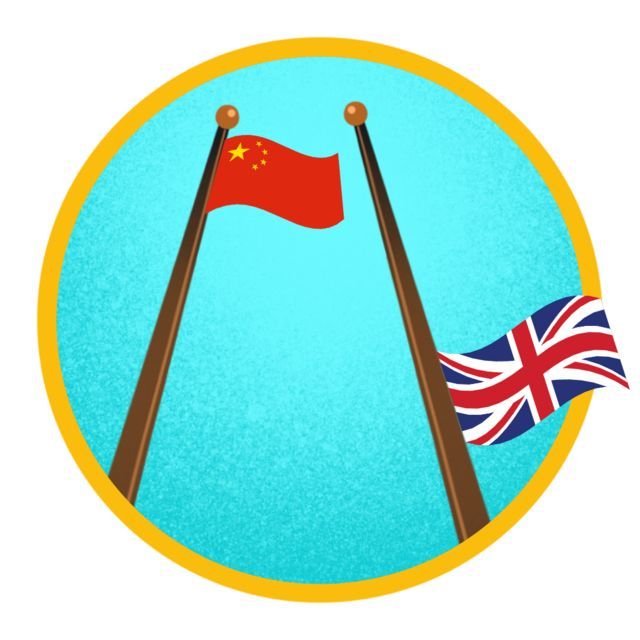
At 0:00 on July 1, 1997, in the Hong Kong Convention and Exhibition Center, after the British Hong Kong flag was lowered along with the "Mizi Flag" for the last time, the Chinese People's Liberation Army played the "March of the Volunteers" in Hong Kong for the first time, and the five-star red flag and the Bauhinia flag were raised. rise. At the same time, the People's Liberation Army Garrison in Hong Kong took over the Prince of Wales Barracks of the British Army in Hong Kong and became the Central Barracks of the Chinese People's Liberation Army Garrison in Hong Kong.
About 90 minutes later, Tung Chee-hwa was sworn in as the first Chief Executive of the Hong Kong Special Administrative Region in front of the then Chinese Premier Li Peng. The main officials and members of the Provisional Legislative Council read their oath of office one after another, and the Hong Kong Special Administrative Region governed by the CCP was officially established.
After the highlight moment, came the challenge one after another. The Asian financial crisis hit the Hong Kong stock market and the exchange rate of the Hong Kong dollar. The world's first human infection with H5N1 avian flu turned into an epidemic. The relocation of Kai Tak Airport to the new airport in Chek Lap Kok caused chaos. After the immigration wave, those who stayed witnessed what happened next.
2. Disputes over the right of abode in Hong Kong
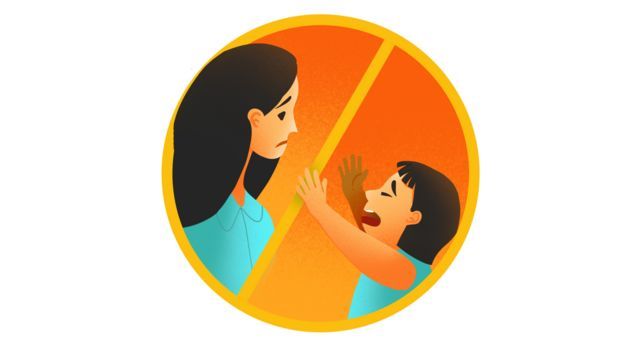
China took over Hong Kong, and the definition of Hong Kong permanent resident changed with the implementation of the Basic Law of Hong Kong, which led to a group of children of Hong Kong permanent residents who were born in mainland China but overstayed their visas or stayed in Hong Kong without a permit to apply to the Immigration Department of the SAR Government Confirmation of residency.
The Hong Kong government urgently revised the immigration laws and implemented the "Certificate of Residence in Hong Kong" system, requiring these "undocumented children" to return to the mainland and apply for the "Hong Kong and Macau Permit" (one-way permit) issued by the mainland and the certificate issued by the Hong Kong Special Administrative Region. , can immigrate to Hong Kong, and the amendments will be retroactive to July 1, 1997. Some families went to the High Court of the SAR to file judicial review lawsuits, seeking to stay in Hong Kong directly, while the Immigration Department began to repatriate undocumented children who did not file lawsuits to the mainland.
On January 29, 1999, the Court of Final Appeal of the Special Administrative Region ruled in the case of Wu Jialing, ruling that children born to Hong Kong people in mainland China, regardless of whether they have obtained a one-way permit, whether they were born in wedlock or illegitimate, and whether or not their parents had become permanent residents of Hong Kong at the time of birth. All residents have the right of abode in Hong Kong. The SAR government warned that if the ruling is implemented, about 1.67 million mainland Chinese residents will immigrate to Hong Kong through this route within ten years.
Chief Executive Tung Chee-hwa asked the Standing Committee of the National People's Congress of China to explain the relevant provisions of the Basic Law. On June 26, 1999, the Standing Committee of the National People's Congress passed the Interpretation Act, stipulating that only children born to Hong Kong permanent residents who have been granted a one-way permit in mainland China can enjoy the right of residence in Hong Kong. right. This is commonly known as "the first interpretation of the law by the National People's Congress". The decision of the Standing Committee of the National People's Congress essentially rejected the ruling of the Hong Kong SAR Court of Final Appeal.
The Chinese government emphasizes that the National People's Congress has the right to interpret laws, including the Basic Law of Hong Kong. People in Hong Kong's pro-democracy legal circles believe that "interpretation of the law" impacts Hong Kong's judicial independence.
The dispute over the right of abode in Hong Kong did not end there. Later, it was extended to the arson case of the Immigration Department building that killed two people, the dispute over the right of abode for foreign domestic helpers and their children, and the final judgment of the Zhuang Fengyuan case in 2001.
Among them, the Zhuang Fengyuan case established that children born in Hong Kong by mainland Chinese residents whose parents are not Hong Kong residents are Hong Kong permanent residents, laying the groundwork for the issue of "double non-children" caused by mainland residents going to Hong Kong to give birth in the future.
3. SARS struck, "23 Articles" and "July 1st" parade
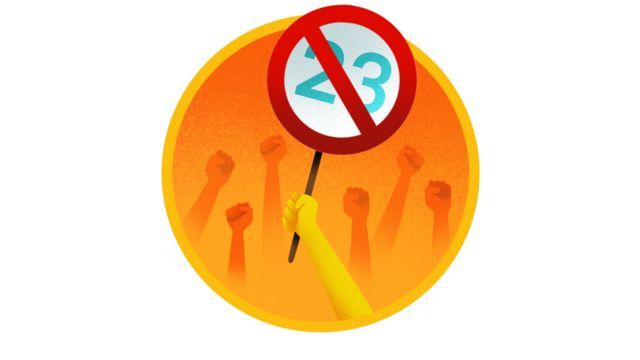
On February 21, 2003, Liu Jianlun, a retired professor from the Second Affiliated Hospital of Sun Yat-sen University in Guangzhou, came to Hong Kong to visit relatives. He developed pneumonia symptoms and was admitted to the hospital shortly after checking into the hotel, and he eventually died. Subsequent epidemiological investigations identified this as the source of the unexplained pneumonia outbreak in Hong Kong.
On March 15 of that year, the United Nations World Health Organization officially named the virus "Severe Acute Respiratory Syndrome" (SARS). Until the WHO removed Hong Kong from the list of affected areas on June 23, a total of 1,755 people in Hong Kong were infected with SARS, of which 299 died, including eight medical staff who died on the line.
The SARS epidemic has caused the Hong Kong economy, which has just recovered from the Asian financial crisis, to suffer another severe setback, and the speed of the SAR government's response to the epidemic has been questioned by public opinion. While responding to the epidemic, the SAR government is also busy promoting another task: the national security legislation of Article 23 of the Basic Law.
"Treason," "subversion," "secession," and "sedition," etc. in the draft legislation, as well as the police's powers to carry out searches without a court warrant, have attracted pro-democracy political groups and supporters. Concerns about the erosion of fundamental human rights and freedoms.
Amid a lot of anxiety, the pan-democratic faction headed by the Civil Human Rights Front called on citizens to protest on July 1. In the end, the downtown streets in the northern part of Hong Kong Island, starting from Victoria Park to the Central Government Headquarters, filled up on that sweltering afternoon. There were black-clad protesters chanting slogans against "Article 23 Legislation" with Tung Chee-hwa and several officials.
Organizers said more than 500,000 people took to the streets, making it the largest demonstration in Hong Kong since the 1989 solidarity with Beijing's student movement and the handover of sovereignty in 1997.
The Tung Chee-hwa government finally withdrew the "National Security (Legislative Provisions) Bill". The Secretary for Security, Ip Lau Suk-yi, who presided over the legislative work, and the Secretary for Health, Welfare and Food, Yeung Wing-keung, who presided over the anti-epidemic work, resigned one after another. Tung Chee-hwa also resigned in March 2005. Failed to complete a second five-year term.
Since then, the July 1st parade has become an important part of Hong Kong's pro-democracy political calendar, and together with the "Article 23 Legislation", it has become a thread for future relations between Hong Kong and Beijing.
On the other hand, the Director of Health, Margaret Chan, under the leadership of the Health, Welfare and Food Bureau, was invited to Geneva to serve as WHO Assistant Director-General after dealing with avian influenza and SARS. In 2007, he was nominated and elected as Director-General by Beijing. Became the first senior UN official from Hong Kong.
4. Beijing Olympics
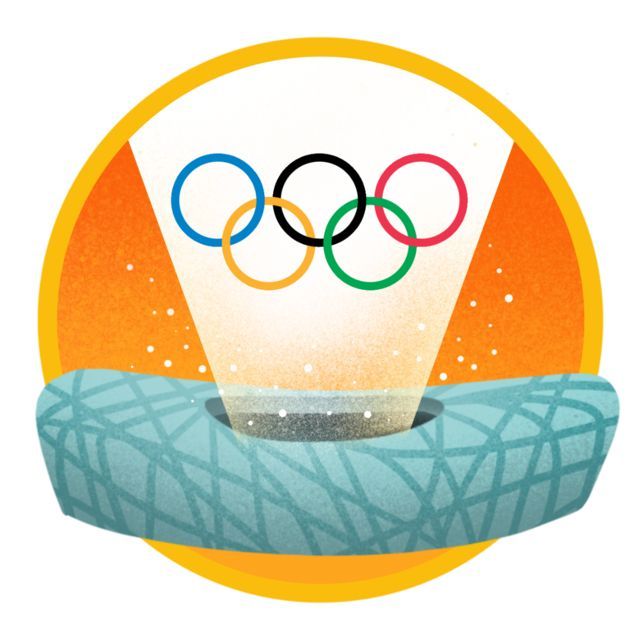
In the summer of 2008, some media described it as Hong Kong's "patriotic summer". Beijing hosted the Summer Olympics in August, and Hong Kong also became a co-host city to host the Olympic equestrian events, which is not unrelated to Hong Kong's century-old horse racing tradition.
When China regards the right to host the Olympic Games as a manifestation of its national strength, Hong Kong's "patriotism" seems to have reached a high point at this moment - the identity tracking survey of the Public Opinion Research Project of the University of Hong Kong (now the Hong Kong Public Opinion Research Institute) shows that in 2008 It was the year when Hong Kongers identified themselves as Chinese with the highest ratings since China joined the World Trade Organization in 2001.
Before the Olympic Games, the "5.12" earthquake in Wenchuan, Sichuan, which had an exceptionally heavy casualty, amounted to billions of Hong Kong dollars in donations from Hong Kong people, breaking the donation records for the 1989 Beijing student movement and the 1991 East China flood.
In May, when the Olympic torch relay came to Hong Kong, tens of thousands of citizens cheered on Nathan Road, a major traffic road in Tsim Sha Tsui, Kowloon. Even though civil society groups protested in solidarity with Tibetans who were suppressed in Tibet's unrest in March, they still expressed support for the Beijing Olympics. Hong Kong pro-democracy veteran Li Zhuming even commented at the time that the presence of supporters and protesters at the torch relay site showed that "one country, two systems" was still being implemented.
A university student who participated in the protest told BBC Chinese at the time: "We actually support China's Olympic Games, but we just want it to improve human rights."
In the previous 2004 Athens Olympics, Hong Kong table tennis players Li Jing and Gao Lize won the men's doubles silver medal, becoming the first Olympic medal since the windsurfer Li Lishan won the Atlanta Olympic gold medal in the name of British Hong Kong in 1996. This is the first time that Hong Kong has won the medal since it changed to the name of Hong Kong, China. It is a pity that the two of them failed to hit the medals again in this Olympic Games with home advantage.
5. The Manila Hostage Incident and "Secondary Sovereignty"

On August 23, 2010, a tourist bus with a tour group from Hong Kong Kangtai Travel Service was intercepted and hijacked by gunmen in Rizal Park, Manila, Philippines. In the end, eight Hong Kongers and the gunman were killed and seven Hong Kongers were injured.
Public opinion in Hong Kong questioned the Manila police's improper handling of the case, which resulted in casualties. Chief Executive Donald Tsang announced a rare announcement of mourning throughout Hong Kong. Government departments flew the regional flag at half-mast for three consecutive days. Immediately after, the State Council of China approved the Hong Kong SAR government and the authorities in Beijing to lower the Chinese flag at half-mast at the same time. The SAR government issued the highest level of black travel warning to the Philippines, and the relationship between the two sides was tense. Rumours of people being fired by Hong Kong employers have spread among Hong Kong's huge Filipino domestic helper community.
Since then, at least two anti-terrorist drills by the Chinese mainland public security and armed police have reenacted the Manila hijacking incident, showing how to quickly rescue the hostages hijacked on the bus, ensure that they are completely harmless, and at the same time kill or capture the hijackers alive.
The case comes at a time when the dispute between China and the Philippines over the sovereignty of Huangyan Island in the South China Sea (called Scarborough Shoal in the Philippines) is intensifying, and Sino-Philippine relations are tense. Shortly after the Manila hostage incident, it was reported that Donald Tsang had made three direct phone calls to Philippine President Benigno Aquino III, but no one answered, sparking a "sub-sovereign" debate.
Ruan Cishan, a pro-Beijing commentator on Hong Kong's Phoenix TV, criticized Tsang for not being qualified to call Aquino. He said: "The chief executive of Hong Kong is not the head of state, let alone Hu Jintao, it is impossible to fight. This is a big fuss... If you want the Philippines to submit a responsibility report, who is responsible, and what is your business in Hong Kong?" Hong Kong international relations scholar Shen Xuhui publicly refuted, calling Hong Kong as " "Sub-sovereignty" area, "Tsang's phone call, his strategy of handing over issues to the public, defending the dignity of one country, two systems, and consolidating Hong Kong's international space, deserves a long-lost applause."
Liu Yiqiang, a member of the Tenth National Committee of the Chinese People's Political Consultative Conference, criticized Zeng Yinquan's failure to call Aquino for "self-humiliation", and on the other hand, criticized Shen Xuhui for "bringing out the so-called 'sub-sovereign' false academics"; Professor Liu Zhaojia, chief adviser of the Central Policy Unit of the SAR Government, then wrote an article criticizing Shen Xuhui's "improper use of words", making people think that "someone intends to make Hong Kong an independent political entity". However, Liu Zhaojia also said that Donald Tsang called Aquino directly, just using "the relationship with leaders of other countries established by the Hong Kong representative of the Asia-Pacific Economic Cooperation (APEC)", which was an action of a special case.
According to the Basic Law of Hong Kong, Hong Kong can continue to use the name "Hong Kong, China" to participate in certain international organizations after its handover in 1997. APEC is one of them. In APEC, the chief executive of Hong Kong, China, the president of the Chinese Communist Party, and the president of the Philippines and other members of the political system are on an equal footing. Shen Xuhui later lamented to Radio France Internationale (RFI) that when the West discusses sub-states and sub-sovereignties, they will never compare it with issues such as separatism and "Hong Kong independence". influences.
On April 12, 2018, the new Philippine President Rodrigo Duterte visited Hong Kong and said when meeting with Filipinos: "As the President of the Republic of the Philippines and on behalf of the Filipino people, please allow me to express my gratitude to the Chinese who are here with us. People say it from the bottom of my heart, let me now formally apologize to you. We are deeply sorry for the accident that happened, and within our power, I promise that nothing like this will ever happen again.”
Duterte also said: "China has been very good to us, they have given 500 million yuan in loans in addition to various multi-billion projects."
Xie Zhijian, brother of Hong Kong tour guide (leader) Xie Tingjun who died in the hostage incident, told the BBC Chinese at the time that Duterte's apology as a president was a positive thing. The mistake cost him his death."
6. Insulting Luke ads and Lugang conflict
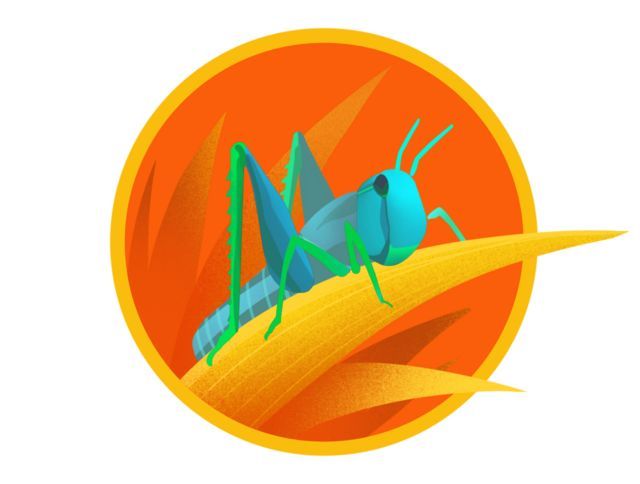
On February 1, 2012, a yellow-based advertisement appeared in Hong Kong's "Apple Daily". An insect was riding on the top of Lion Mountain. The text of the advertisement asked: "Are you willing to spend $1,000,000 every 18 minutes in Hong Kong to raise 'Double Fei'? Children?"
Prior to this, Hong Kong's online use of a discriminatory derogatory term - "locust" to refer to residents and tourists from mainland China, the insect riding the Lion Mountain in the advertisements, is exactly the locust.
The Hong Kong media refers to people from mainland China as "locusts", which is generally regarded as an insult and discriminatory behavior. At the same time, some analysts pointed out that the discriminatory remarks also reflected multiple contradictions between Hong Kong and the mainland.
Prof Gordon Mathews, an anthropologist at the Chinese University of Hong Kong, once pointed out to the BBC that the "locust" controversy and the broader conflict between China and Hong Kong are inseparable from the issue of vanity.
"Thirty years ago, mainlanders...were considered country people. Now the richest people in Hong Kong are tourists and investors from the mainland," Professor McGordon said.
"For many Hong Kongers, this is both surprising and disturbing."
Media sources who are aware of the situation also pointed out that after the SARS epidemic in 2003, Beijing signed the Closer Economic Partnership Arrangement (CEPA) with Hong Kong and Macau, and then implemented the "free travel" of mainland Chinese residents to Hong Kong and Macau. State media said the move was aimed at helping Hong Kong revive its economy. However, the large number of mainlanders visiting Hong Kong has brought huge economic benefits, and at the same time, it has also deepened the contradictions among the people due to phenomena such as "rush buying" and "birth tourism".
According to statistics from the Hong Kong Census and Statistics Department, between 2003 and 2013, more than 211,400 babies were born in Hong Kong to mainland Chinese women whose spouses were either non-Hong Kong permanent residents or undeclared.
In 2012, Leung Chun-ying succeeded Tsang Yam-kuen as the chief executive. Before taking office, he said that there is no guarantee that "dual non-babies" born in Hong Kong in 2013 can obtain permanent residency in Hong Kong. Subsequent "Shuangfei" delivery appointments are called "Shuangfei Juelong".
The Hong Kong government's move failed to quell public grievances. The "localist" ideology in Hong Kong has risen, and the protests against "double illegal" have come to an end, and the "explosive buying" problem related to "freedom" and water tourists still exists, which has become the background of many "recovery" demonstrations in 2015.
7. From Occupy Central to the Umbrella Movement

Hong Kong's Basic Law promises that the chief executive will "ultimately achieve the goal of universal suffrage after nomination by a broadly representative nominating committee in accordance with democratic procedures". In 2007, the Standing Committee of the National People's Congress passed a resolution setting the so-called "timetable" for universal suffrage: Hong Kong can elect the Chief Executive by universal suffrage in 2017, and all members of the Legislative Council in 2020 can be elected by universal suffrage.
Pan-democrats have always been skeptical about Beijing's sincerity in implementing universal suffrage, and urged the SAR government to publicly consult the universal suffrage plan as soon as possible. Legal scholar Dai Yaoting believes that the public must take stronger action in order to achieve the goal of universal suffrage. In March 2013, Dai Yaoting, social scholar Chen Jianmin, and Christian pastor Zhu Yaoming formally established the "Occupy Central with Love and Peace" movement, emphasizing that they would use a peaceful and non-violent civil disobedience model to occupy the central streets in protest at the appropriate time.
On June 10, 2014, the State Council Information Office of China issued a white paper titled "The Practice of "One Country, Two Systems" in the Hong Kong Special Administrative Region, stating that "the limit of a high degree of autonomy lies in the power granted by the central government, and the Hong Kong Special Administrative Region enjoys as much power as possible, and there is no 'residual'. "The system of universal suffrage for the Chief Executive and the Legislative Council must conform to national sovereignty, security and development interests, as well as the actual situation of Hong Kong... In particular, it must conform to the legal status of the Hong Kong Special Administrative Region as a local administrative region directly under the Central People's Government, In line with the Hong Kong Basic Law and the relevant decisions of the Standing Committee of the National People's Congress, the candidates for the Chief Executive elected by universal suffrage must be people who love the country and Hong Kong."
When the "white paper" proposed Beijing's "comprehensive governance", and pro-democracy public opinion questioned Beijing's tightening of its policies towards Hong Kong, on August 31, the Standing Committee of the National People's Congress passed a resolution stipulating that candidates for the chief executive must obtain the support of the nomination committee. The nomination committee will follow the old election committee model. For the democrats, the "8.31 Resolution" is equivalent to the continuation of small circle elections and is a "fake universal suffrage". A "citizen nomination" proposal by some parties was also rejected here.
Actions against the "8.31 Resolution" erupted in Hong Kong academic circles, including school strikes in protest. On September 26, 2014, when striking students gathered at the new government headquarters in Admiralty to protest, Scholarism and the Hong Kong Federation of Post-secondary Students stormed into the East Wing Square, which the protesters called "Citizen's Square". . Student protest leaders such as Huang Zhifeng, Zhou Yongkang, Cen Aohui and the police have been toying with the police for a long time, and the number of people outside the fence of the government headquarters has increased.
In the early morning of September 28, Dai Yaoting announced the early launch of "Occupy Central". As a result, Admiralty replaced the Central Ring, which was hundreds of meters away, and became the center of this road blocking demonstration. The 79-day occupation began. In the evening of the same day, the riot police fired tear gas canisters to disperse, but the protesters resisted the tear gas canisters with umbrellas, which became the origin of the name "Umbrella Movement". In Mong Kok and Causeway Bay, people suddenly blocked roads, forming three "occupied areas".
On October 11, Chinese Vice Premier Wang Yang said during his visit to Russia that Western countries were trying to launch a so-called "color revolution" in Hong Kong; Any consensus, the momentum of the demonstrations is declining. On December 15, the police cleared the area occupied by Admiralty and arrested several protest leaders and prominent figures who came to support the scene. The "Umbrella Movement" came to an end.
The 79-day occupation has brought Hong Kong society into a confrontational situation between the pro-democracy "Yellow Silk" and the pro-establishment faction, especially the pro-police "Blue Silk". There are a number of "umbrella organizations" emerging within the pro-democracy camp, such as Hong Kong Zhongzhi, and even those who advocate "nativism" and even "Hong Kong independence", such as the local democratic frontline and the Youth New Deal. But at the same time, the old pan-democratic forces were divided because they could not achieve results in the Umbrella Movement. Among them, the Hong Kong Federation of Students, which had long represented Hong Kong college students, broke out a wave of "exit".
The pro-Beijing camp once again raised the voice of promoting Hong Kong's "Article 23" national security legislation and defending the CCP regime. In January 2015, Hong Kong media reported that representatives of the Hong Kong District of China's National People's Congress planned to call on the National People's Congress to revise the law during the "two sessions" in March to directly apply China's "National Security Law" to Hong Kong. Chen Zuoer, president of the National Hong Kong and Macau Research Association supported by the Hong Kong and Macau Affairs Office of the State Council of China, publicly claimed that young people in Hong Kong have been "brainwashed" and asked the Hong Kong SAR's educational institutions to "replenish their brains".
8. Mong Kok conflict involving fish balls
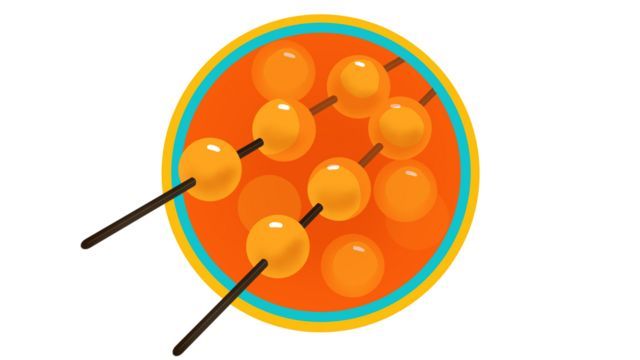
The first three days of the Lunar New Year are a public holiday in Hong Kong for a long time, and most restaurants are closed. During this period, unlicensed cooked food hawkers sell in groups at night, forming polders. It is a common phenomenon, and this is gradually regarded by some people as It is part of Hong Kong's Chinese New Year culture, but some people advocate that it should be banned in order to maintain environmental hygiene and food safety.
On February 8, 2016, the first night of the Lunar New Year, the Hong Kong Food and Environmental Hygiene Department hawker management team, equivalent to the urban management personnel in mainland China, dispersed and arrested unlicensed cooked food hawkers in Mong Kok. Political activists such as the local democratic front line came to support the hawkers. The police swarmed and it turned into a confrontation between the police and the people. In the early morning of the second day of the Lunar New Year, the police tried to disperse the crowd, and the confrontation turned into a conflict. During this period, traffic police shot into the sky, demonstrators built roadblocks with debris at different locations, and some people set fire to it. By morning, more than 50 people had been arrested and the clashes had subsided. The Hong Kong police and the media called it the Mong Kok riot, the Mong Kok riot, etc. Some people on the protest side called it the "fish ball revolution", which was quoted by the international media.
As for why it is fish balls, it is probably because it is the most common street food in Hong Kong. It used to be a commodity that many cooked food hawkers depended on to support their families, and even went from grass roots to well-off stores.
During the clashes in Mong Kok, at least 37 people were charged by the police. Among them, Liang Tianqi, a spokesman for the Local Democracy Front, was sentenced to six years in prison for rioting in June 2018 and will be released in January 2022. On the occasion of the "anti-extradition" demonstration in November 2019, he was selected as one of the "Top 100 Representatives of the Next Generation" by the American "Time" magazine. Time magazine said the protesters saw him as a "spiritual leader."
9. High-speed rail "co-location inspection" and Zheng Wenjie incident
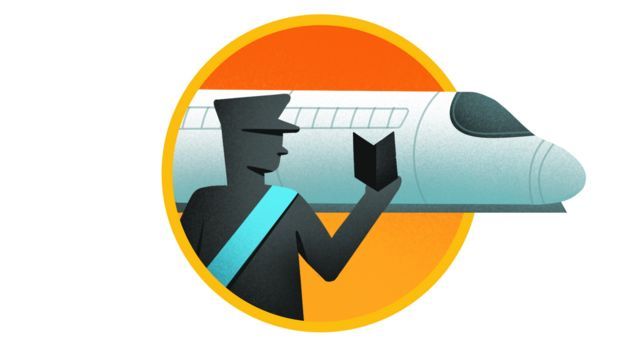
In 2009, the government of Donald Tsang decided to build the Hong Kong section of the Guangzhou-Shenzhen-Hong Kong high-speed rail to connect the high-speed rail network in mainland China. At that time, issues such as land acquisition caused great controversy. In July 2017, the Lam Cheng Yuet-ngor government announced the customs clearance arrangements for the high-speed rail, which aroused stronger dissatisfaction from the democrats and their supporters.
This arrangement is "co-location inspection". The Hong Kong West Kowloon Station of the Guangzhou-Shenzhen-Hong Kong High Speed Rail has designated areas under the jurisdiction of the laws of mainland China, and stationed immigration, customs and public security police. While the same border inspection arrangements have already been implemented at the Shenzhen Bay Port, the West Kowloon Station is the first to allow mainland Chinese law enforcement officers to enforce the law within Hong Kong.
However, the SAR government emphasizes that the "Mainland Port Area" is regarded as outside the scope of the Hong Kong SAR, so it will not violate the Basic Law. Secretary for Justice Yuen Kwok-keung emphasized that "Co-location Inspection" is related to benefits, and there is no intention or reason to undermine "One Country, Two Systems".
On September 23, 2018, the Hong Kong section of the high-speed rail was officially opened to traffic, and the "Co-location Inspection" was officially implemented. A year later, pro-democracy fears that Hong Kong residents will be "sent" by Chinese law enforcement officers have been revived.
August 8, 2019 - When the "anti-extradition" demonstration in Hong Kong occurred - Cheng Wenjie, a local employee of the British Consulate General in Hong Kong, went to Shenzhen to attend a business meeting and returned to Hong Kong by high-speed rail, but did not return home on time. The Ministry of Foreign Affairs of the Communist Party of China later It was announced that Zheng Wenjie was suspected of visiting prostitutes and was sentenced to 15 days of administrative detention by Shenzhen Luohu Public Security Bureau citing China's Public Security Administration Punishment Law.
In an exclusive interview with the BBC after his release, Zheng Wenjie said that he was intercepted by the Chinese side after arriving at West Kowloon Station, handed over to the National Security Police, and brought back to Shenzhen for questioning. They asked what support, funding and equipment we had provided to the demonstrators."
Zheng Wenjie claimed that he was tortured by the national security guards and asked him to admit that he was stirring up unrest in Hong Kong on behalf of the United Kingdom. On the allegations of visiting prostitutes, he said: "I don't want to focus on whether I was a prostitute...because that's what they want."
"I just want to make it clear that I have done nothing wrong with the people I cherish and love."
On November 20, the day the BBC report was published, British Foreign Secretary Dominic Raab (Lan Taowen) summoned the Chinese ambassador to express his dissatisfaction. The next day, the CCP state media broadcasted the "evidence" of Zheng Wenjie's whoring of prostitutes. Some netizens criticized Zheng Wenjie for being "slapped in the face", and some netizens questioned the authenticity of the clip. Zheng Wenjie issued a statement the day before, admitting to having massaged in Shenzhen.
In June 2020, Zheng Wenjie was granted political asylum in the UK.
As for West Kowloon Station, due to the 2019 novel coronavirus disease (COVID-19) epidemic, the station that has been open for more than a year has been suspended since January 30, 2020.
10. "Reverse Extradition", "Hong Kong National Security Law" and the Great Change in the Election System
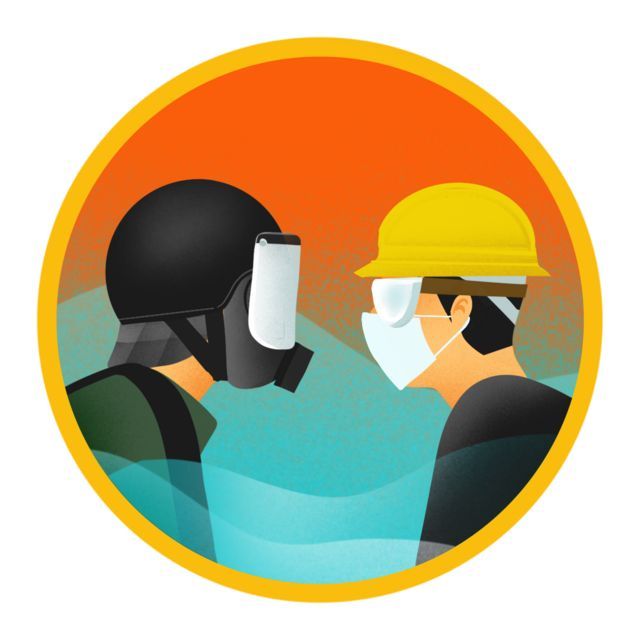
On February 17, 2018, Hong Konger Chen Tongjia killed his girlfriend Pan Xiaoying, who was also a Hong Konger, in a hotel in Taipei, Taiwan. After abandoning her body, she absconded and returned to Hong Kong. She was arrested by Hong Kong police for withdrawing Pan Xiaoying's bank deposit and taking away her camera and smartphone. Arrested and charged with "dealing with proceeds of crime" (money laundering).
Chen Tongjia pleaded guilty. On April 29, 2019, the Court of First Instance of the High Court of the Hong Kong Special Administrative Region sentenced him to 29 months in prison. The verdict stated that Chen Tongjia admitted to killing his girlfriend in Taipei and abandoning her body, but Hong Kong has no jurisdiction over the case in Taiwan and cannot prosecute him for murder and other crimes.
There is no extradition agreement between Taiwan and Hong Kong. In 2018, the Shilin District Prosecutor's Office in Taiwan made three requests for mutual legal assistance to the Hong Kong SAR government, including sending Chen Tongjia to Taiwan for trial, but the SAR government ignored it. On February 12, 2019, the mother of the deceased, Pan Xiaoying, publicly called for the amendment of the law and the extradition of Chen Tongjia to Taiwan. The Carrie Lam administration immediately proposed to amend the Fugitive Offenders Ordinance and the Mutual Criminal Assistance Ordinance, including removing restrictions on extradition laws that do not apply to mainland China, Macau and Taiwan.
Taiwan, the United Kingdom, the United States, the European Union and Canada have successively expressed concern over the Hong Kong government's proposal to amend the bill, and China requires all countries not to interfere in Hong Kong's internal affairs. Pro-democracy activists have staged at least two demonstrations against amendments to the extradition bill that would allow Hong Kong residents to be extradited to mainland China for trial.
The third parade was held on June 9. The organizer said that 1.03 million people participated, a new high since the handover of sovereignty in 1997. On June 12, the demonstration repeated the "Umbrella Movement" in 2014. The people briefly occupied the road outside the government headquarters in Admiralty. The police fired tear gas and rubber bullets to disperse it.
On June 15, Lam Cheng Yuet-ngor announced that she would suspend the revision of the law, but it failed to calm the situation. Another parade the next day set a new record with 2 million people participating. The protesters' demands gradually condensed into the slogan of "five demands, all of which are indispensable", including withdrawing the amendments to the Fugitive Offenders Ordinance, withdrawing the definition of "riot", and immediately implementing genuine universal suffrage for the Chief Executive and the Legislative Council. On September 4, the SAR government officially withdrew the amendment.
Compared with the "Umbrella Movement" five years ago, the "Anti-Extradition China" demonstration included the peaceful march of millions of people and the violent confrontation between many demonstrators and riot police. At that time, the "local faction" abused mainland Chinese residents as "locusts", but at this time it was replaced by "blue silk" and even the representatives of the police union publicly condemned the demonstrators as "no different from cockroaches (cockroaches)." Some commentators were quick to point out that in the 1994 genocide in Rwanda in Africa, the Hutu leaders who instigated the massacre called their target Tutsi "cockroaches."
The marches and clashes continued into January 2020, a month after the democrats' landslide victory in district council elections de-escalated the clashes. Then the first confirmed patient of the new crown appeared, and it spread rapidly, and the demonstrations turned into small-scale "flash"-style actions.
On June 30, 2020, the Standing Committee of the National People's Congress of China passed the National Security Law for Hong Kong, which took effect immediately. While the demonstrations were paralyzed, some pro-democracy groups immediately announced their disbandment.
The pro-democracy group then tried to coordinate the election of the Legislative Council in September by holding a primary election, but the SAR government obtained Beijing's consent to postpone the election, citing the epidemic as an excuse. The Standing Committee of the National People's Congress passed a decision in November that served as the basis for revoking the membership of "endangering national security" lawmakers. On January 6, 2021, the Hong Kong National Security Police arrested 47 primary election candidates and organizers under the "Hong Kong National Security Law" and charged them with "conspiracy to subvert state power". In the next six months, a number of organizations closely related to the pro-democracy faction were dissolved one after another, and their leaders were arrested by the Hong Kong National Security Police. Hong Kong's pro-democracy movement has suffered a "sudden freeze".
After the promulgation of the "Hong Kong National Security Law", the United Kingdom, Canada, Australia and Taiwan successively introduced policies to facilitate the settlement of Hong Kong people, such as the United Kingdom's "Hong Kong BNO visa". Tens of thousands of Hong Kongers have left Hong Kong, including some prominent pro-democracy politicians and academics. The United States announced sanctions on a number of Chinese and Hong Kong officials, but failed to change the situation.
In March 2021, the National People's Congress passed the "Decision on Improving the Election System of the Hong Kong Special Administrative Region" to rectify the Hong Kong electoral system based on the principle of "patriots ruling Hong Kong". In December of the same year, the postponed general election of the Legislative Council was held. Only one self-proclaimed non-establishment person was elected to the 90-seat parliament, and the traditional pan-democratic faction completely disappeared. On May 8, 2022, Li Jiachao, who was the Secretary for Security when the amendment to the Fugitive Offenders Ordinance was proposed, was elected as the Chief Executive as the "sole candidate" and took office on July 1, becoming the first Hong Kong Chief Executive who came from the police system.
Like my work? Don't forget to support and clap, let me know that you are with me on the road of creation. Keep this enthusiasm together!

- Author
- More